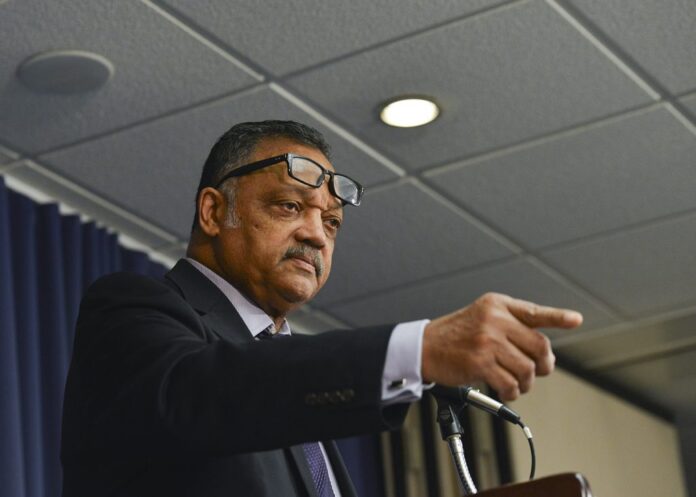
By Stacy M. Brown, NNPA Newswire Senior National Correspondent
Rev. Jesse Jackson’s decision to step down as president and CEO of the Rainbow PUSH Coalition this month has led many to reflect on the civil rights leader’s astonishing career.
But a significant part of Jackson’s fight for justice was his ability as a deft negotiator.
That was no more evident than when Jackson distinguished himself as a diplomat.
Beyond his efforts on American soil, he played a pivotal role in securing the release of numerous American hostages held captive abroad.
His unwavering commitment to justice and diplomacy has saved lives and earned him global recognition as a skilled negotiator.
One of the most notable instances of Jackson’s intervention occurred in 1985 during the hijacking of TWA Flight 847.
En route from Cairo to San Diego, Hezbollah militants seized the aircraft and took 153 passengers hostage, including 40 Americans.
Prior to the TWA Flight 847 crisis, Jackson previously negotiated with Syrian officials for the release of a captured American airman, and several Cuban political prisoners.
In each instance, President Ronald Reagan sharply criticized Jackson for interfering with foreign matters.
However, having developed a reputation in conflict resolution, Jackson swiftly embarked on a diplomatic mission to Lebanon.
In a daring move, he met with Hezbollah leaders and engaged them in intensive negotiations.
Jackson’s empathetic approach and genuine concern for the hostages’ welfare allowed him to establish a rapport with the captors.
He also demonstrated his commitment to addressing the broader political grievances in the region, which resonated with the militants.
After several days of intense discussions, Jackson’s efforts bore fruit, and the militants agreed to release some of the hostages.
Although the release of the remaining captives took longer, his perseverance and determination ultimately led to their safe return home.
The TWA Flight 847 crisis’s successful resolution earned him praise from the American public and international leaders.
Another landmark hostage negotiation led by Jackson occurred in 1999 when Serbian forces captured three American service members during the Kosovo conflict.
Jackson traveled to Belgrade, Serbia, to talk with the Serbian leadership.
Despite the tense and complex political climate, he skillfully navigated through diplomatic obstacles and pressed for the service members’ release.
Jackson’s unyielding dedication and tenacious spirit in fighting for the hostages’ freedom were instrumental in securing their safe return.
His intervention highlighted the importance of dialogue and diplomacy in resolving international crises.
“I stood ready to do whatever I could within the bounds of the moral and legal law to help,” Jackson insisted.
In 2017, Jackson announced that he had Parkinson’s disease, an illness caused by certain nerve cells breaking down and consequently reduces the amount of chemical, dopamine, that sends signals to the part of the brain that controls movement.
The disease affects about 60,000 Americans each year, and afflicts as many as 10 million globally.
Diagnosed in 2015, Jackson determined to work through his illness before publicly announcing it two years later.
Still, his efforts have saved lives and contributed to the global perception of America as a country that values peaceful resolution over aggression.
“Recognition of the effects of this disease on me has been painful, and I have been slow to grasp the gravity of it,” he said after publicly announcing his illness.
“A Parkinson’s diagnosis is not a stop sign but rather a signal that I must make lifestyle changes and dedicate myself to physical therapy in hopes of slowing the disease’s progression.”


